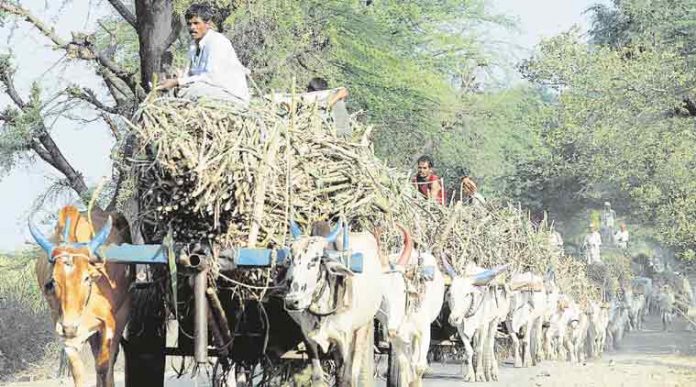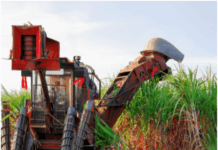Labour trouble looms large over the sugar industry in Maharashtra as a section of sugarcane harvesters have threatened to go on a strike if their demands are not met. Sugar mills in the state also fear large-scale migration of harvesting labourers to Gujarat and Karnataka, which might further hamper their operations.
The sugar season 2018-19 for Maharashtra, which is likely to start early, would see mills starting their crushing operations by October 1. The sugar commissionerate estimates suggest the state would see crushing of 1,000 lakh tonnes of cane and produce 110-115 lakh tonnes of sugar. The early start to the season would allow mills to produce raw sugar for the first few months, which is aimed primarily at export markets. An increase in the cane area — this season the state has reported over 10.75 lakh hectares of cane area — would increase the demand for harvesters.
Maharashtra’s sugar season is marked by the annual migration of harvesters, who are drawn mostly from Marathwada and Northern Maharashtra. Called Oosh Thodani Kamgars, these harvesters are either from the tribal communities or the OBC Wanjari community. The migrant labourers come from areas that are drought-prone and the income from the cane harvesting is what sustains them.
Mills in Maharashtra start negotiation with labourers well before the start of the season, which is post Diwali. Negotiations are done through labour contractors or muggadams, who are paid lump sum amounts well in advance to book labourers. Mostly informal, this well-oiled system governs the migration and working of around 7-8 lakh labourers, who are crucial for the sugar sector. Labourers are paid per tonne of cane they harvest.
D L Karad, president of the Maharashtra Sugarcane Cutting and Transport Workers Union, said they have already issued a notice to the Maharashtra State Cooperative Sugar Mills Federation about the impending strike. The Union, which is affiliated with the CPI(M)-backed Centre of Indian Trade Union (CITU) has been demanding an increase in payment as well as constitution of a welfare board for them. “We have asked for a raise in payment from Rs 198 per tonne at present to Rs 400 per tonne,” he said.
The establishment of the welfare board has been a long-standing demand of workers, who claim such a board would help in directing welfare policies for the sector. Karad claimed the board has not been functional despite repeated demands from the sector. “In view of the failure of the federation and the state government to meet any of our demands, we have decided to go on a strike,” he said. A formal notice has already been issued to the federation with Karad stating that multiple reminders have failed to elicit any response from the body. “We are hopeful that the federation will respond by the next week, else the mills will have to face the music,” he said.
As mills grapple with labour troubles, usage of mechanised harvesters have increased in the state over the last few years. The state has over 400 such machines, which are employed to harvest canes. This year, industry sources indicated that around 300 more such machines would have been added to the fleet. However, the decision of the central government to stop the subsidy — 40 per cent or Rs 40 lakh — for purchasing of such machines has put a question mark about the orders. Priced at Rs 1 crore and above, farmers often form small groups to purchase these machines on the basis of surety of work by the sugar mills.












